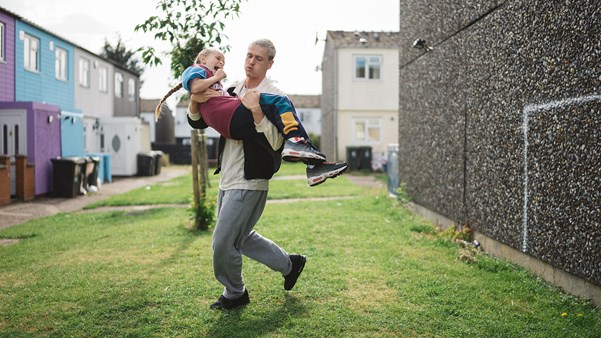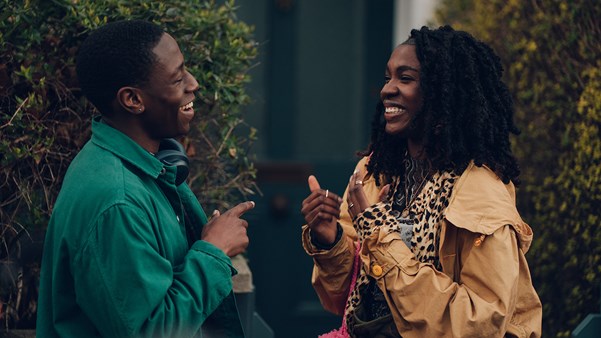From Molly Manning Walker to Raine Allen Miller, there’s been a recent surge of debut directors whose insightful films present young womanhood with remarkable specificity and candour, says Emily Maskell.

In the past year, a wave of new women filmmakers have ushered in an exciting era of British cinema. These débutantes are united by their refreshing perspectives on modern girlhood and young womanhood. Collectively, their films push boundaries in their timely, resonant depictions of class, race and sexuality. These titles – including Charlotte Regan’s tender working-class drama Scrapper (2023), Raine Allen Miller’s Black British rom-com Rye Lane (2023) and Molly Manning Walker’s sharp analysis of consent in How to Have Sex (2023) – mark an invigorating moment in the British film industry. This eruption of women directors is not just a trend, but a movement blossoming in the UK’s creative field.
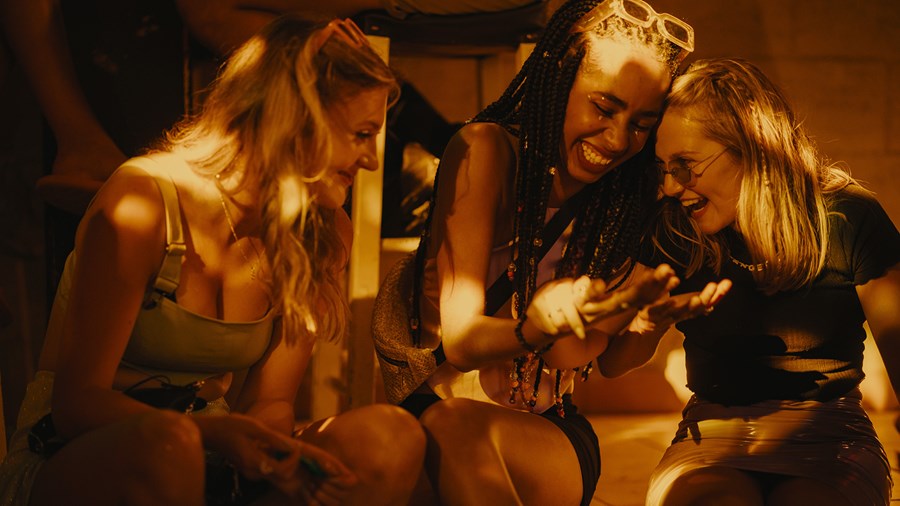
How to Have Sex (2023)
Regan captures the gorgeous imagination of childhood in Scrapper. The film centres on 12-year-old Georgie (Lola Campbell), whose youth is uprooted following the death of her mother. She’s living alone on a council estate and is entirely self-sufficient, outsmarting social services and daydreaming about what the spiders in her house would say if they could talk. Regan’s poppy style rejects conventional depictions of poverty on screen. Working-class life is typically portrayed with gritty, kitchen-sink realism, but Scrapper embraces Georgie’s childlike wonder with fantasy sequences that energise the narrative.
The director uses the unexpected arrival of Georgie’s absent father Jason (Harris Dickinson) as an opportunity to delve into the tween’s imagination. We are plunged into her perspective and see him as a prisoner in an orange jumpsuit, a vampire in a cape and a gangster with gold teeth while she shuffles through different identities trying to work out who her father is. In the film, girlhood is an adventurous, colourful time far removed from the sentimental sepia tones of nostalgia. Regan’s vibrant palette – of pastel-hued council houses and bright-pink costumes – matches Scrapper’s lighthearted tone. The film’s playful, mockumentary framing of the story, wherein exasperated locals complain about the troublemaking Georgie, also gives the film a joyful springiness.
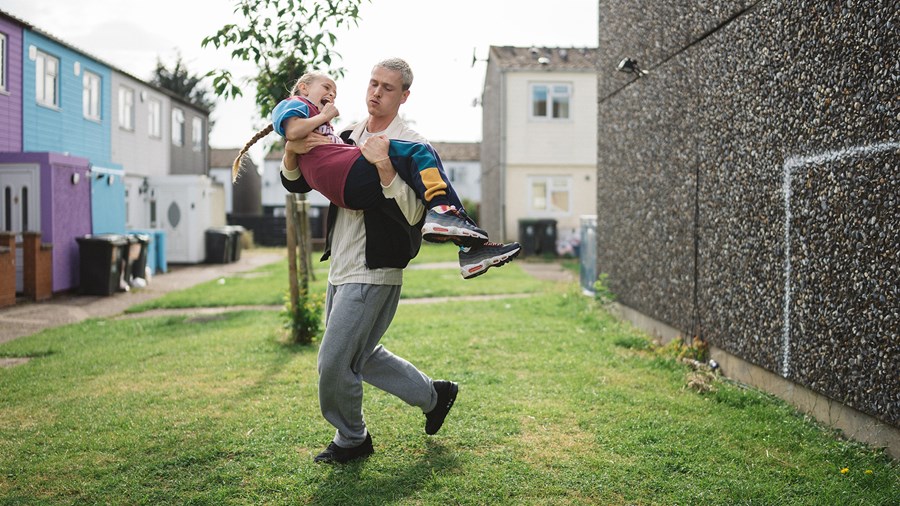
Scrapper (2023)
Early-adolescent rebellion brews in Georgie as she rejects the laddy Jason’s intrusion, locking him out of the house and refusing to abide by his authority. Charlotte Wells’ BAFTA-winning Aftersun (2022) also sees a father-daughter bond tested. Wells’ intimate film centres on cheeky 11-year-old Sophie (Frankie Corio), enjoying a rare summer holiday with her soft-spoken father Calum (Paul Mescal). Adolescence begins to creep into Sophie’s view as she seeks independence from Calum. Sun-soaked memories of karaoke and tai chi become tainted by Sophie’s growing awareness of her father’s declining mental health, and Aftersun punctuates her reflections with scrappy camcorder footage.
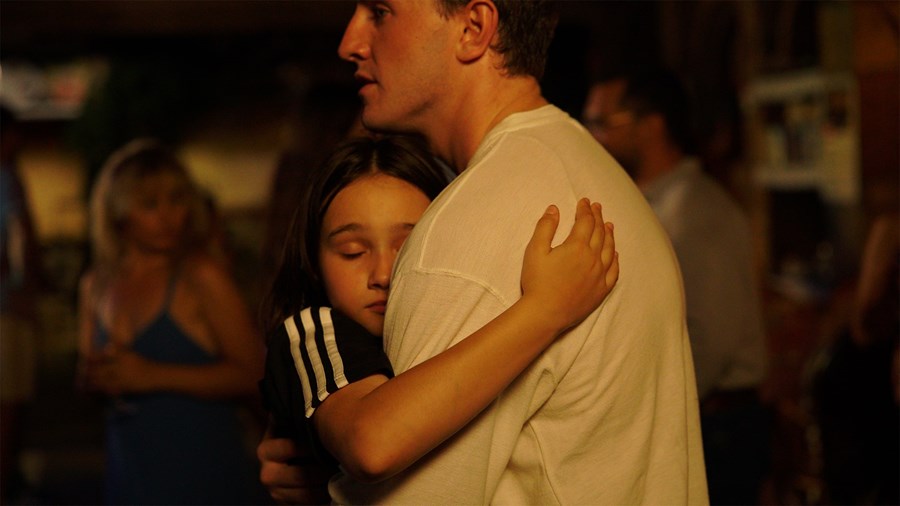
Aftersun (2022)
Both Scrapper and Aftersun’s heroines discover a newfound sense of freedom, which differs greatly from the presentation of girlhood in Adura Onashile’s Girl (2023). Ama (Le’Shantey Bonsu) is confined to her council flat and separated from her peers because of her strict mother Grace (Déborah Lukumuena), whose generational trauma and immigrant status have left her ultra-protective. In contrast to Jason and Calum’s laissez-faire parenting, Grace watches her daughter like a hawk: she counts the number of steps she takes away from her child and repeatedly tells her ‘we cannot trust anyone’ with intense paranoia. There is a solemnity to Girl, since Ama’s perfectly natural curiosity and desire to explore elicits fear in her psychologically fragile mother.
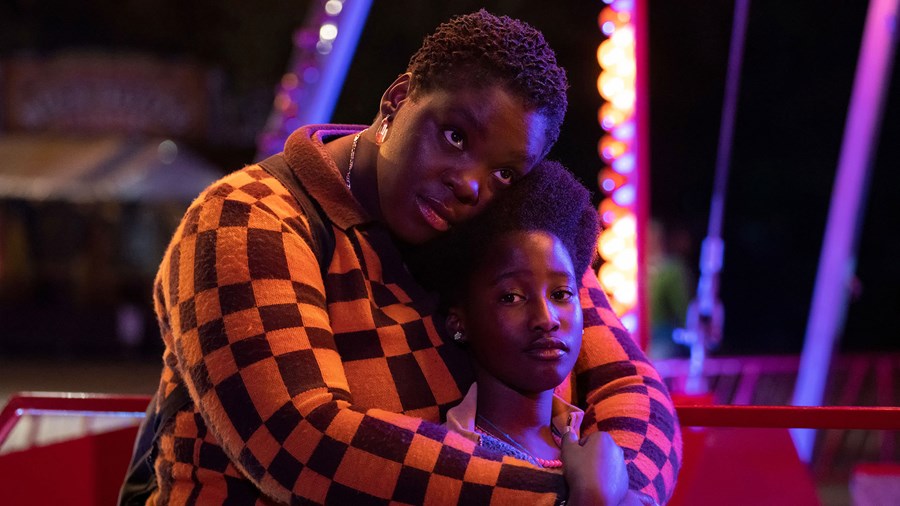
Girl (2023)
Rye Lane (2023), as a portrait of Black identity, could not be tonally further from Girl. Allen Miller’s crowd-pleasing debut follows Yas (Vivian Oparah) and Dom (David Jonsson) from their unconventional meet-cute in a bathroom to their wandering odyssey through the neighbourhoods of south London, which the filmmaker renders with the same rainbow-bright hues as Regan in Scrapper. Rye Lane is a universally appealing premise for a character-driven rom-com, but the film is set firmly in a Black British context. The specificity of experience – including afternoons at a Jamaican barbecue and street vendors known as ‘uncle’ – is not compromised in Allen Miller’s delightful rom-com. Though it chronicles a romance, Allen Miller’s breezy Rye Lane also functions as an ode to south London’s lasting cultural diversity – it runs counter to the likes of Notting Hill (1999), which focuses entirely on white characters despite being set in a majority-Black neighbourhood.
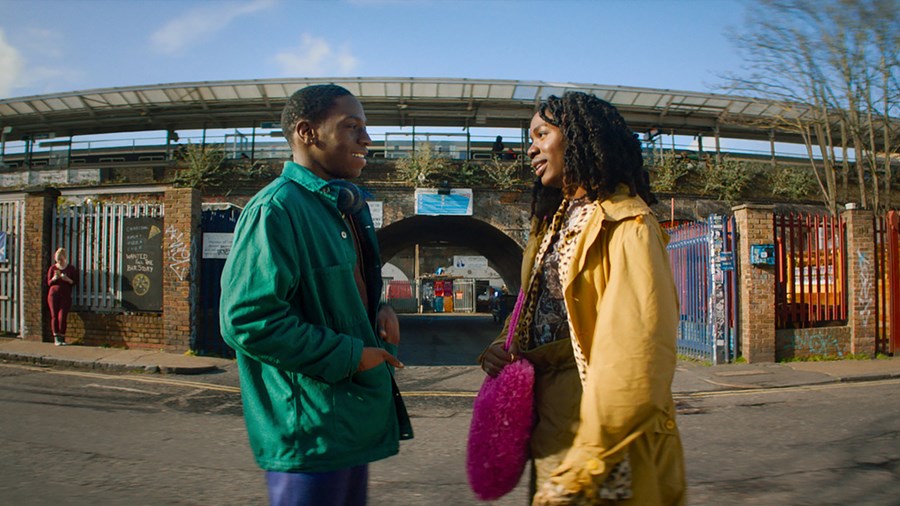
Rye Lane (2023)
Georgia Oakley’s Blue Jean (2023) is another debut that brings nuance and specificity to the screen, though this film offers a piercing portrait of sexuality. Set in Newcastle in 1988, it explores the impact of Margaret Thatcher’s ban on the ‘promotion of homosexuality’ through the eyes of lesbian teacher Jean (Rosy McEwen). Jean lives a double life – closeted at school, out at home – until she spots one of her students at the local gay club, and her two worlds collide with frightening force. The school becomes the setting for a silent standoff between student and teacher. In a shrewd storytelling move, Oakley reverses the expected age of coming out, since it’s the older Jean who cowers in the closet.
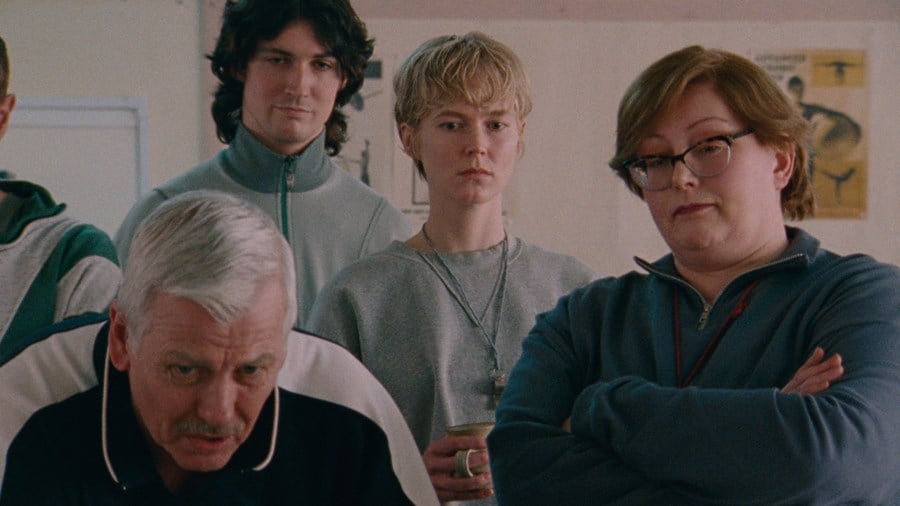
Blue Jean (2022)
Much like Blue Jean, Manning Walker’s How to Have Sex explores high-schoolers’ sexuality. Here, an indelible summer holiday provides the backdrop for a painfully real portrait of adolescence. Manning Walker’s drama begins with a trio of British teens – Tara (Mia McKenna-Bruce) and her friends – descending on a Malia resort for a rite-of-passage holiday. Tara sizes up their neighbouring holidaymakers, Badger (Shaun Thomas) and Paddy (Samuel Bottomley), as potential conquests. Though Tara and Badger have burgeoning chemistry, she ends up alone on the beach with Paddy. After tossing her into the sea despite her pleading protests, he crawls on top of her, caging in her body. Manning Walker cuts away from the chilling scene, but distressing flashbacks to Tara’s breathless wincing and fingers grasping for purchase against the sand make your blood run cold.

How to Have Sex (2023)
How to Have Sex, which avoids coming-of-age clichés and exploitative direction, is a sharp exploration of how complicity perpetuates sexual assault and rape. Paddy’s buddy Badger is aware his friend is a ‘nightmare of a guy’, and yet he never speaks up to protect Tara. Meanwhile, Tara’s fuzzy memories of the night have her disassociating, looking so helpless as she wanders the Malia strip alone. Consent and trauma interrupt her journey of carnal discovery, and the film exposes the pressure young women are under to have sex, both from boys and each other (it’s Tara’s friend who nastily teases her about being a virgin). How to Have Sex is a watershed moment in cinema’s portrayal of consent, treating young women with refreshing attention and empathy in what is considered a ‘grey area’ of sexual assault.

How to Have Sex (2023)
Like Manning Walker’s moving film, all of these cinematic debuts are unapologetic in their fresh presentations of underrepresented voices. Whether it be capturing moments of poverty with unexpected brightness, populating the white rom-com genre with Black characters or shining a spotlight on the unspoken nuances of consent, British female debut directors are embodying the perspective of their characters to immerse viewers in the distinct trials and tribulations of young womanhood.
WATCH HOW TO HAVE SEX IN CINEMAS


